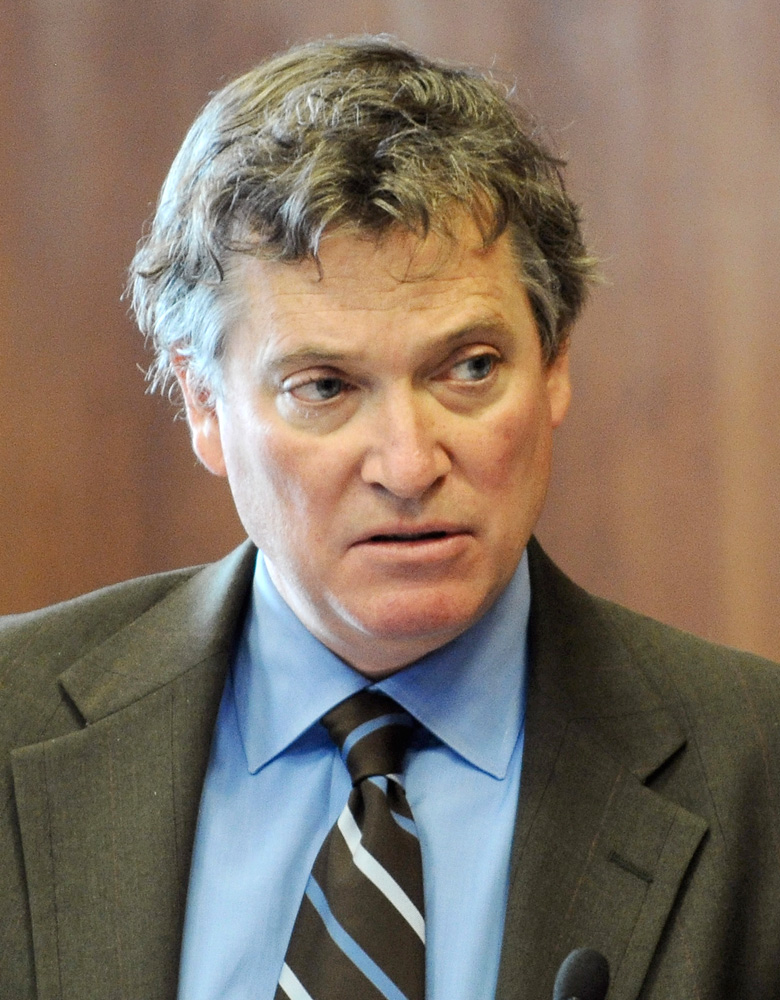Advertisement
Parole Board Chair Faces Staunch Opposition To Judgeship Nomination
ResumeNominated by Gov. Deval Patrick for a Superior Court judgeship, state Parole Board Chairman Joshua Wall is gearing up for his second confirmation fight in three years.
Wall made his name and, critics say, his reputation, prosecuting and winning convictions in high-profile, high-tension cases of gang-related murders in the inner city.

During an 18-year stint with the Suffolk County district attorney's office, Wall was passionate, tireless and thoroughly prepared. When the first two trials of the two alleged killers of a college kid and innocent bystander named Cedric Steele ended in mistrials, Wall took over. He prosecuted the third trial in 2010 and won two convictions.
In late 2010, when a career criminal out on early parole murdered a Woburn police officer, Gov. Patrick needed to cap the public fallout. He nominated Wall as chairman of the Parole Board and forced five board members to resign. Wall was confirmed by the Governor's Council, but only after a fight.
Now that Patrick has picked Wall to be a Superior Court judge, some big name criminal defense attorneys from his courtroom days say that what prosecutor Wall did back then makes him unfit for the job.
"This has in it the attitude that I've described earlier as winning at all costs, doing any and everything possible to win," said Willie Davis, who has practiced law for 52 years and served as a federal magistrate judge.
Davis commands wide respect. Over the years he's recommended many nominees and never opposed anyone, until now.
Davis plans to testify before the Governor's Council about one case he says is enough to disqualify Wall.
In 2004, two defendants went on trial charged with the murder of a 10-year-old girl killed in the crossfire of a shootout between rival gangs. After four days, the jury acquitted one defendant. It was going into its fifth day deliberating about the other defendant, who was Davis's client, when Wall did a criminal background check of the jurors.
"Why would you then want to investigate that jury unless you had in mind finding something that would enable you to move for a mistrial, which meant that the case was over and you would have to start all over again," Davis said.
Wall discovered that five jurors had not revealed their criminal history on jury questionnaires before the trials. After he informed the judge, she dismissed each of those jurors until there were too few to deliberate and declared a mistrial.
Davis is convinced Wall wanted to stop the jury before it might acquit his client. He claims there was no evidence the jurors told intentional lies.
"What Josh did under those circumstances given the information that he had was entirely proper," said Suffolk County District Attorney Dan Conley, who supervised Wall for nine years and made him first assistant district attorney. "A Superior Court judge said so, and the Supreme Judicial Court said so as well."
Indeed, the SJC declared in its 2007 ruling that Wall did not intend to cause a mistrial.
But the belief Wall values convictions more than fair trials has galvanized other well-known attorneys.
At the coming hearing, Bernard Grossberg says he will testify that Wall as a judge can't be expected to impose rules he didn't respect as a prosecutor. Others have described what they call a pattern of excluding young black men from juries. And Rosemary Scapicchio says she will testify that Wall withheld important evidence for a year and a half from a defendant convicted of four murders.
"I would not want him to be in the position of making decisions on exculpatory evidence for defendants whose life hangs in the balance," Scapicchio said.
Yet Wall's supporters describe an altogether different figure, who's ethical, fair and compassionate.
"When he was first assistant, he was always the voice of reason, he was always the one you could turn to," said defense attorney Michael Doolin, who worked on a committee led by Wall that reformed the collection of eyewitness evidence, reducing the possibility of wrongful convictions due to mistaken identifications.
Those new guidelines Wall turned into a manual for prosecutors drew praise from one national expert as "the gold standard." And District Attorney Dan Conley cites Wall's embrace of post-conviction forensic testing as proof of his commitment to just outcomes.
"He's made a lot of tough decisions that maybe some people disagree with but that were based on the facts and the law and that's exactly the kind of judge that we want to see." Conley said.
The Governor's Council, which confirms or rejects the governor's nominees for judgeships, has taken notice of the strong opinions about Wall.
"You have to be impressed," said Councilor Michael Albano. "I've been around a while in government and I've never seen this type of opposition."
Citing the number and intensity of letters and phone calls about Wall, the Governor's Council has moved his confirmation hearing from this month to mid-September to allow for two days of testimony.
This group of adversaries and critics from Wall's courtroom days will then join another set of Wall opponents: those critical of how the Parole Board has acted under his leadership. Letters to councilors indicate those opponents will testify about what they say is a lack of fairness that has turned the Parole Board into a "Denial Board."
This article was originally published on August 28, 2014.
This segment aired on August 28, 2014.
